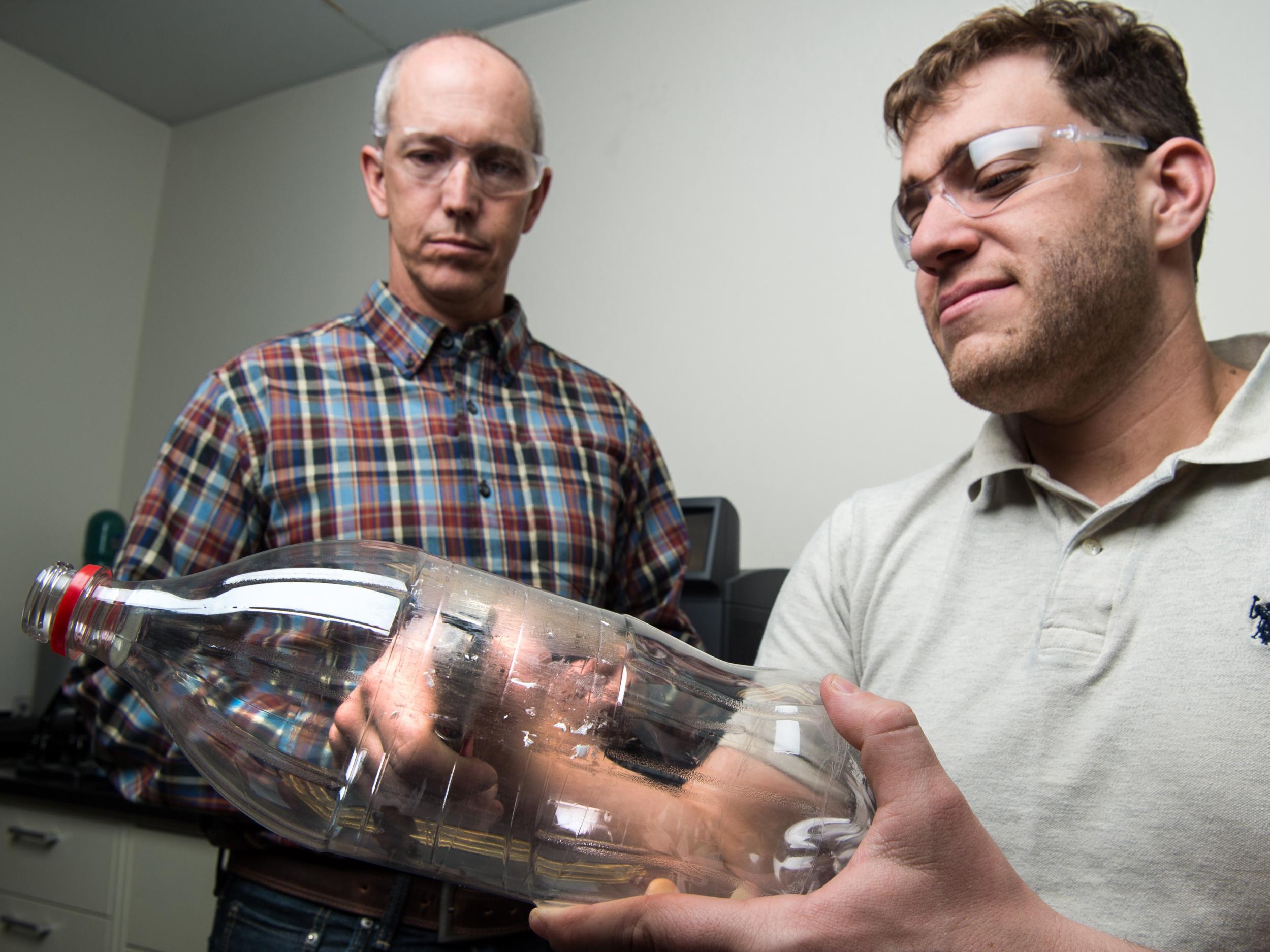Plastic-eating enzyme accidentally created by scientists could help solve pollution crisis
'This is a potentially very useful technology to support recovery and recycling of plastics,' says expert

Scientists have created a substance capable of “eating” plastic that could help tackle the world’s pollution problem.
The substance is based on an enzyme – a “biological catalyst” – first produced by bacteria living in a Japanese recycling centre that researchers suggested had evolved it in order to eat plastic.
Dubbed PETase for its ability to break down the PET plastic used to make drinks bottles, the enzyme accelerated a degradation process that would normally take hundreds of years.
Fine-tuning this naturally produced enzyme allowed a research team to produce something capable of digesting plastic more effectively than anything found in nature.
By breaking down plastic into manageable chunks, the scientists suggest their new substances could help recycle millions of tonnes of plastic bottles.
Plastic is notoriously resistant to natural degradation, and the discovery of the Japanese plastic-eating bacteria in 2016 was heralded by experts and commentators alike as a potential natural solution to plastic pollution.
While attempting to verify these claims, University of Portsmouth biologist Professor John McGeehan and his colleagues accidentally created a super-powered version of the plastic-eating enzyme.

"Serendipity often plays a significant role in fundamental scientific research and our discovery here is no exception," said Professor McGeehan.
During an investigation of the enzyme’s structure, the scientists made a slight tweak to the part thought to be involved with plastic digestion.
Doing so ramped up the ability of the enzyme to degrade PET, and also gave it the ability to degrade an alternative form of PET known as PEF.
"Although the improvement is modest, this unanticipated discovery suggests that there is room to further improve these enzymes, moving us closer to a recycling solution for the ever-growing mountain of discarded plastics,” he said.
“Being able to see the inner workings of this biological catalyst provided us with the blueprints to engineer a faster and more efficient enzyme."
The research was led by postgraduate student Harry Austin, and published in the journal Proceedings of the National Academy of Sciences.
Though simply breaking down larger pieces of plastic into smaller pieces is not in itself useful – and in fact creates microplastics of the type current causing damage to marine environments – the scientists suggest their method could be employed to make plastic recycling far more effective.
“This is a potentially very useful technology to support recovery and recycling of plastics,” said Professor Nilay Shah, a chemical engineer at Imperial College London who was not involved in the work.
“It should allow selective deconstruction of PET into its constituent components and therefore lead to a higher value approach to recycling such materials where mechanical recycling is not possible. In such cases, current approaches involve less sophisticated methods such as incineration.”
The discovery has been welcomed enthusiastically by other scientists, who nevertheless cautioned there would be a long way to go before these enzymes are widely applied in the recycling industry.
"Oil-derived plastics and polymers are resistant to degradation and their accumulation in the environment is an appalling problem,” said Professor Douglas Kell, a bioanalytical scientist at the University of Manchester.
“Evolving enzymes to degrade such plastics is a high priority.”
“While there is still a way to go before you could recycle large amount of plastic with enzymes, and reducing the amount of plastic produced in the first place might, perhaps, be preferable, this is certainly a step in a positive direction and very exciting science to boot,” said Dr Oliver Jones, an analytical chemist at RMIT University in Melbourne.
Awareness of plastic pollution has spiked in recent months, with communities across the UK implementing measures to cut down on plastic waste.
These local efforts have been accompanied by Government policies to help tackle this “scourge”, including the ban on microbeads and the introduction of a bottle deposit scheme.
However, Professor McGeehan noted the role that science must also play in developing novel solutions to fight against the tide of plastic.
"Few could have predicted that since plastics became popular in the 1960s huge plastic waste patches would be found floating in oceans, or washed up on once pristine beaches all over the world,” he said.
"We can all play a significant part in dealing with the plastic problem, but the scientific community who ultimately created these 'wonder-materials', must now use all the technology at their disposal to develop real solutions."
Join our commenting forum
Join thought-provoking conversations, follow other Independent readers and see their replies
Comments
Bookmark popover
Removed from bookmarks